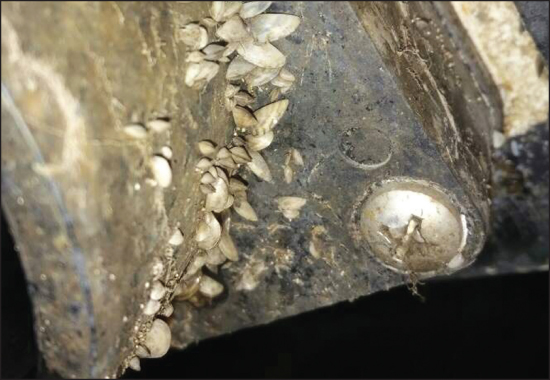SANDRA M STANWAY
Brooks Bulletin
The province Has reported a record number of inspections for aquatic invasive species, particularly zebra and quagga mussels while the Eastern Irrigation District was just shy of its 2020 inspection numbers.
The province inspected more than 13,000 boats and watercraft that were entering the province while the EID inspected 4,343 boats, just 25 inspections below 2020.
This year the EID found that 4,222 of the boats and watercraft were low risk, 188 were from out of province and 33 were from out of country. Of those inspected by the district, 121 were deemed to be high risk and 33 were disallowed entry, although once they had their documents about half did return.
The EID inspected crafts from British Columbia, Saskatchewan, Manitoba, Montana, Washington, Idaho, Florida, California, Mexico, Ontario, Yukon, Utah, South Dakota and Oregon at Crawling Valley, Lake Newell Resort Marina, Kinbrook Island and Rolling Hills Reservoir.
The inspection program is not 24 hours which concerns Brandi Doerksen, EID’s AIS land administrator, since a boat can be missed.
“We just try to get the busy ones (locations) and try to get where we know those high risk people are going to come but it’s definitely a concern all the time. We’re trying to look at ways that we can improve the program to get more of those watercrafts lined up,” she said.
Doerksen follows the season up with inspections of the water, the main infrastructure and all docks that are removed from the water to ensure there are no AIS.
“We’ve never found anything attached or anything suspect,” she said.
The province had a similar report.
“Alberta took action to keep invasive mussels out of our waterways this summer and we did so successfully,” said Grant Hunter, Taber-Warner MLA and chair of the AIS task force.
“We inspected a record number of boats and other watercraft in 2024 and kept the province zebra and quagga mussel free,” he said.
Of the 13,408 boats and watercraft that were inspected by the province, 15 that were mostly from eastern provinces were contaminated with AIS.
The province also issued 20 $4,200 fines for failing to stop at an inspection station.
The provincial task force is exploring ways to strengthen the program in 2025.
On the federal front in April, 43 members of parliament, mostly from western Canada, urged Prime Minister Justin Trudeau to prioritize resources and initiate actions necessary to prevent any permanent ecological and economic damages if waters are not protected.
Fisheries and Oceans responded in October stating that the federal government did meet with organizations to address mussels and in June and August the department conducted two watercraft inspection blitzes between Manitoba and Ontario.
The DFO is also working with the National Aquatic Invasive Species Committee to develop national standards for decontamination protocols and they are continuing to work with the Canadian Border Services Agency to implement a watercraft inspection and decontamination station at Manitoba’s Emerson port.








